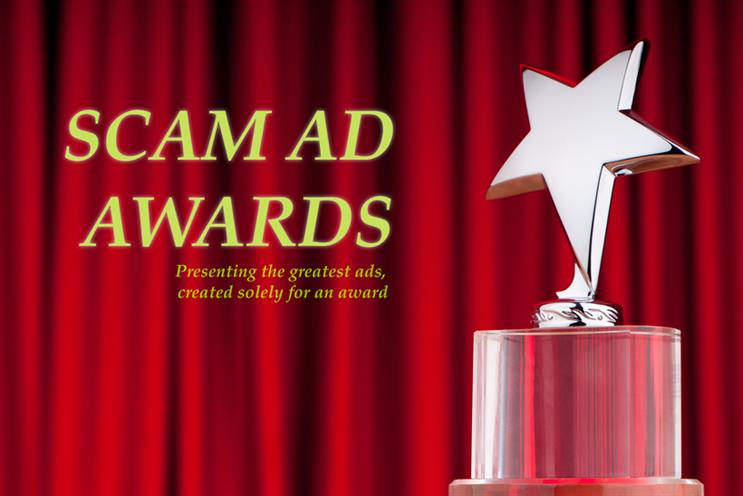
Helen has a PhD in marketing, an MBA from London Business School and is a partner at Passionbrand. She is a former PPA business columnist of the year.
Scrolling through the worldwide ad reel of one of my big, global clients, I was puzzled by a spot that seemed totally out of kilter with the – normally strictly enforced – global brand positioning. "Oh, that was just an ad done by the Australian agency to try to win an award," explained my client contact. "And it did!"
The practice is neither new nor rare. For decades, agency creative teams have solved how to enter the kind of work that awards juries like – elegant, spare, contentious, devoid of irritating details like sales points – by producing ads specifically designed for that purpose.
There were various ways to come at this. In print, it was easy enough to persuade a local dog trainer or optician to accept the offer of a cheeky, free ad, and run it somewhere cheaply, once. Charities were seen by creative teams and agencies as fair game since, if the work was done pro bono, the client would have less bargaining power in those ‘creative purity’ and logo-size discussions.
TV spots like the one I saw would be scripted ‘proactively’ by the agency, which would also pay for the shoot. With a local client’s approval, but still at the agency’s expense, it would then be aired at the minimum level to meet the awards’ entry criteria. The agency would also stump up the not inconsiderable cost of entry itself.
One way or another, an enormous amount of talent, time, ingenuity and money goes into this confected tilt at the acquisition of symbolic shiny objects, and you have to ask yourself why. Or maybe you don’t, if you simply recall the old adage that ‘what gets measured gets done’.
Systematically measured
Awards tallies are measured. They always were, by creative teams, kind of informally, yet with a masterfully accurate grasp of the asymmetries: one person’s cache of a D&AD Black Pencil and two Cannes Lions Grand Prix versus another’s Creative Circle gold, One Show silver and five assorted Clios would be quickly decoded to reveal the former as the bigger creative beast.
 Now, tallies are more systematically measured at the wider agency level by the Gunn Report; its rankings are battled over fiercely by agencies, and taken into increasingly serious consideration by clients when putting together a pitch list. Metrics are driving behaviours, as they so often do.
Now, tallies are more systematically measured at the wider agency level by the Gunn Report; its rankings are battled over fiercely by agencies, and taken into increasingly serious consideration by clients when putting together a pitch list. Metrics are driving behaviours, as they so often do.
Even so, for both creative teams and agencies, shouldn’t this award recognition be no more than just icing on the cake of professional authority? Well, it would be, if only there were a cake.
As it stands, anyone can start an agency and anyone can try their hand as an art director or copywriter. There is no equivalent, mandatory, certification to match the ones required of, say, lawyers or architects.
tried to plug this gap 10 years ago with its Excellence Diploma, but it is voluntary, taught only by agency insiders, and it’s largely strategists, not creatives, who take the course. Fewer than 2% of advertising people have completed it and I’ve never known a client refer to it.
Rightly or wrongly, awards have become the closest the industry gets to certified proof of professional merit. Their pursuit, even by convoluted means, is, therefore, rational. If the absence of what creative people call ‘freight’ – demos, copy points, product-enjoyment shots – helps a TV spot edge past the other entries, better to craft one specially and strive to defend its legitimacy in the event of success.
If you can't beat them...
You might deplore the practice, you might sigh at the introspective silliness of agency ways, but you are not going to change it. So what do you do if your agency seeks permission to craft a spot for your brand and run it quietly somewhere once or twice just to aim for an award?
Give them the go-ahead, subject to basic decency criteria. Let them know you realise that this is really an agency house ad in disguise and that your own brand is merely a sort of vector in that process. Tell them you’ll be watching the outcome with interest.
There are few occasions in advertising where effectiveness can be so quickly and unequivocally gauged. For once, it is binary: either the ad wins or it doesn’t. To do so it will need to reflect a flawless understanding of the target audience – awards judges – and prevail against hundreds of competitors with precisely the same objective.
If the spot duly wins, congratulate your agency in writing and add the following: "You’ve shown that you can be effective in your own market – now do the same in ours."
Recommended


